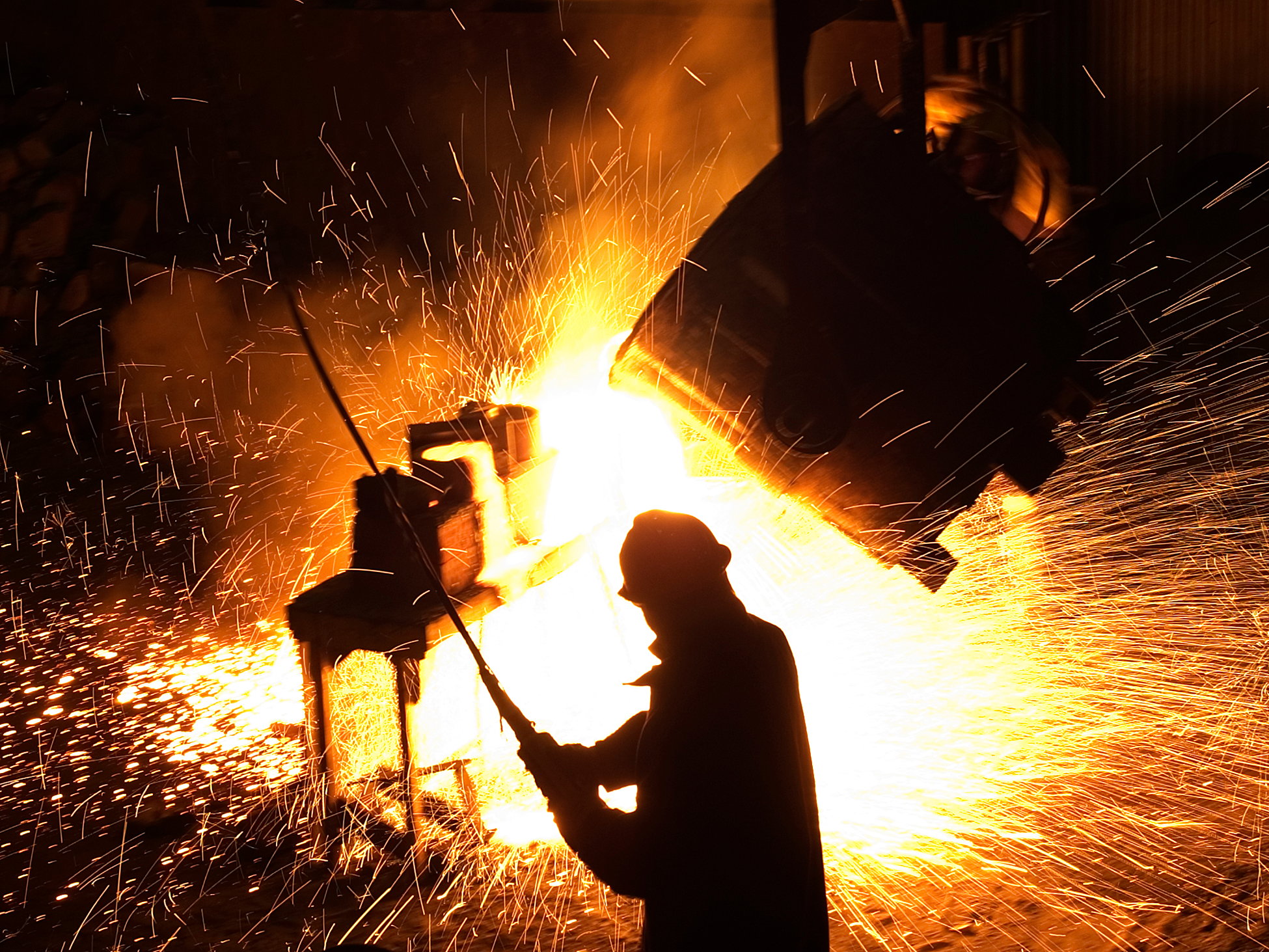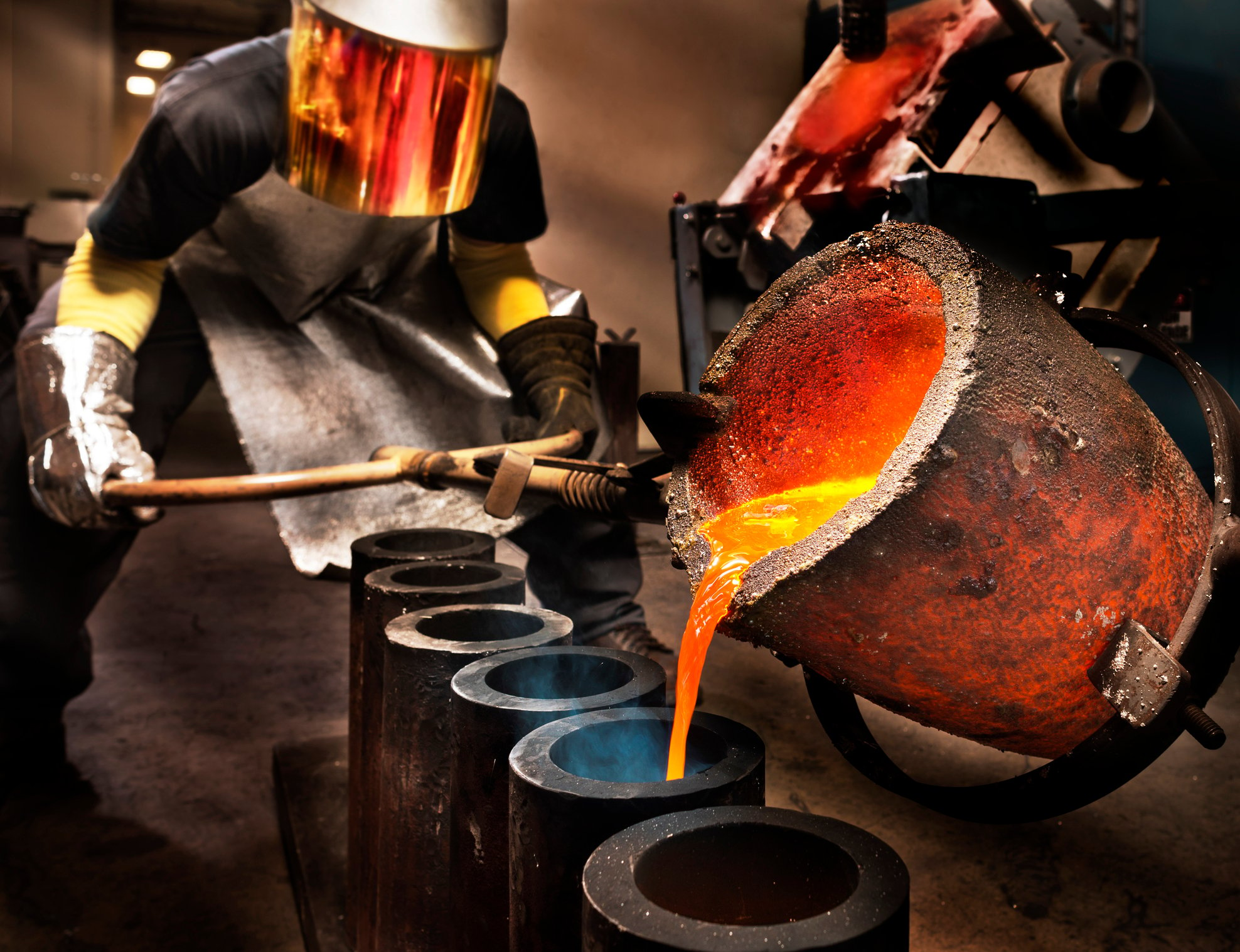Cliffs Natural Resources (CLF 2.10%) has seen its stock price languish since mid-2011, with the stock having fallen during the second half of 2012 to its lowest levels since 2009. Even under difficult economic conditions, it's essential that Cliffs Natural show that it can position itself to recover strongly when the economy turns around.
My premium report on Cliffs Natural Resources goes into more detail on this natural resources company and includes the following description of three key areas that you should keep your eyes on with Cliffs Natural. Let's take a closer look at them.
1. Will Cliffs Natural maintain its dividend?
Cliffs has experienced huge dividend growth in recent years, going from a $0.04 per share quarterly dividend as recently as August 2009 to a $0.625 per share payout in August 2012. Huge earnings growth has made that dividend growth possible.
But between July and October 2012, analysts reined in their expectations of future earnings for Cliffs by more than a third for both 2012 and 2013. Even at a much-reduced $3.59 per share current earnings estimate for full-year 2012, the current dividend represents a payout ratio of less than 70%. Yet with the potential for higher capital expenditure needs and expansion, as well as rising overall costs, Cliffs Natural's poor cash position and substantial debt could eventually force it to cut at least part of its lucrative yield, which is currently 7%. If the dividend gets cut, some diehard shareholders could finally throw in the towel and sell, pushing shares down even further.
2. How will Cliffs Natural's competitors fare?
Cliffs has no shortage of competition in any of its key markets. On the metallurgical coal front, both Teck Resources (TCK 3.31%) and Peabody Energy (BTU +0.00%) believe that the long-term prospects for steel production remain strong, and both companies have taken steps to ensure that they can get through tough times without jeopardizing their chances for success in the long run. In particular, a combination of cost reduction and smart management of production volumes are critical for any company to survive the current malaise in met coal.
For iron ore, Cliffs has global competition to deal with. Cliffs Natural's expansion into the global economy put it up against world leaders like Vale (VALE 0.41%), BHP Billiton, and Rio Tinto (RIO 1.41%), all of which have plenty of experience in dealing with the ups and downs of supply and demand. With so much at stake for those companies, Cliffs can expect an ongoing battle in trying to do business abroad, especially in China.
3. Will a steel glut kill demand for metallurgical coal and iron ore?
Recently, U.S. steelmakers have suffered from an influx of Chinese steel imports. On one hand, that suggests that steel companies in China are using more iron ore and met coal for production, boosting demand. But if U.S. steel companies respond by cutting back on production, then Cliffs could suffer at least temporarily as production slows to let steel demand catch up with supply.
Conversely, U.S. steelmakers also try to export to China. An October 2012 decision from the WTO that the U.S. is not unfairly subsidizing certain specialty steel exports was good news for niche players, but the impact on major steelmakers and their suppliers is likely to be minimal.









